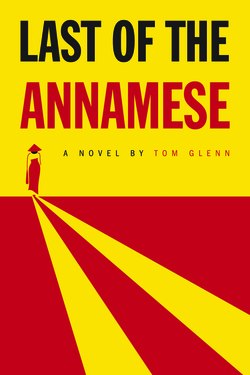Описание книги
No one escaped whole from the fall of Saigon. We Americans were all damaged. The Last of the Annamese is about the Vietnamese and Americans who escaped from Vietnam in April 1975, those who decided to stay, and those who chose death rather than life under the Communists.
The protagonist, Chuck Griffin, has never come to terms with the death of his son, Ben, killed in action in Vietnam. To do all he can to assure that Ben has not died in vain, Chuck, a retired Marine officer, returns to Vietnam after the 1973 withdrawal of U.S. troops. He works as a civilian intelligence analyst to give his utmost to win the war. He renews his friendship with a South Vietnamese Marine colonel, Thanh, at whose side he fought while on active duty. Chuck falls in love with a Vietnamese woman, Tuyet, who knows the country will fall and hopes Chuck will save her and her young son, Thu. But even as the fall of Saigon looms, Chuck is shocked to find himself in a moral dilemma—he has been sleeping with another Marine’s wife: Tuyet is married to Thanh.
The story begins at the Marine Ball in Saigon in November 1974 and ends with the escape of Americans and a few Vietnamese at the end of April 1975. It narrates the final months of the Republic of Vietnam—South Vietnam—and the vain struggle of intelligence professionals to persuade the U.S. Ambassador, the State Department, and the president of the coming disaster. The blindness of American officials as the attack on Saigon drew closer leads one character to observe that we Americans believe our propaganda, not our intelligence.
Although The Last of the Annamese and its characters are fiction, the events chronicled in the book are historical fact. Until 2015, many of those facts were classified. At the author’s behest, they were declassified and are published here for the first time. The book presents unique history heretofore untold.
The author, Tom Glenn, shuttled under cover between Vietnam and Washington for thirteen years during the war and was evacuated under fire from Saigon after the North Vietnamese were already in the streets of the city. For his work during the fall of Vietnam, he was awarded the U.S. Civilian Meritorious Medal.
The protagonist, Chuck Griffin, has never come to terms with the death of his son, Ben, killed in action in Vietnam. To do all he can to assure that Ben has not died in vain, Chuck, a retired Marine officer, returns to Vietnam after the 1973 withdrawal of U.S. troops. He works as a civilian intelligence analyst to give his utmost to win the war. He renews his friendship with a South Vietnamese Marine colonel, Thanh, at whose side he fought while on active duty. Chuck falls in love with a Vietnamese woman, Tuyet, who knows the country will fall and hopes Chuck will save her and her young son, Thu. But even as the fall of Saigon looms, Chuck is shocked to find himself in a moral dilemma—he has been sleeping with another Marine’s wife: Tuyet is married to Thanh.
The story begins at the Marine Ball in Saigon in November 1974 and ends with the escape of Americans and a few Vietnamese at the end of April 1975. It narrates the final months of the Republic of Vietnam—South Vietnam—and the vain struggle of intelligence professionals to persuade the U.S. Ambassador, the State Department, and the president of the coming disaster. The blindness of American officials as the attack on Saigon drew closer leads one character to observe that we Americans believe our propaganda, not our intelligence.
Although The Last of the Annamese and its characters are fiction, the events chronicled in the book are historical fact. Until 2015, many of those facts were classified. At the author’s behest, they were declassified and are published here for the first time. The book presents unique history heretofore untold.
The author, Tom Glenn, shuttled under cover between Vietnam and Washington for thirteen years during the war and was evacuated under fire from Saigon after the North Vietnamese were already in the streets of the city. For his work during the fall of Vietnam, he was awarded the U.S. Civilian Meritorious Medal.
